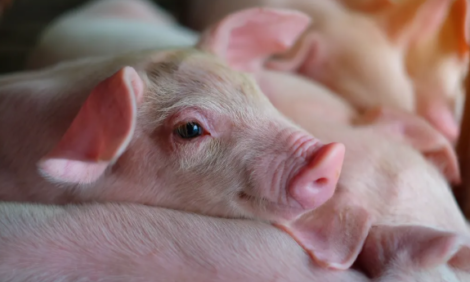



Are Export Subsidies Enough to Stabilise EU Market?
By USDA, Foreign Agricultural Service - This article provides information on the effect of the reintroduction of pig meat subsidies in the EU 27In a special meeting on 29 November 2007, the EU Pig Management Committee agreed to implement export subsidies to support exports of fresh and frozen pork. However, it appears that several EU Member States (MS) did not vote in favour, including Denmark and the United Kingdom.
The details of this export subsidy scheme were published in COMMISSION REGULATION (EC) No 1410/20071 of November 29, 2007.
Lost edge lost
EU pork exports have gradually lost export competitiveness during 2007 as the €/US $ exchange rate further deteriorated, pushing EU pork off mostly dollar-based world pork markets. While Danish pork exports decreased 7.8 per cent compared to 2006, exports from Poland and Hungary, and also from the Czech and Slovak Republics, lost more than 50 per cent of their pork exports. As a result, pork producers in these New Member States (NMS) have been hardest hit by the current pig crisis.The export subsidy of €31.10/100 kg for pork carcasses and cuts covers for almost 25 per cent of the current EU pork average carcase price of around €130/100 kg. The levels of export subsidies for processed pork products were not increased from their previous levels, as these products suffer much less from exchange rate driven competition.

Expectations are that the EC will not keep the export refunds in place for the long term as EU pork production is forecast to start decreasing in early 2008. It is also expected that these export subsidies will have a limited impact as the end of the year is typically the low season for pork exports, especially to Russia.
The European Commission (EC) decided to install this export subsidy two days after the EU Private Storage Aid (PSA) scheme to temporarily take pork off the EU market. It was prematurely ended through COMMISSION REGULATION (EC) No 1391/20072 because applications had almost reached the 100,000 metric tonees (MT) limit for which funding had been provided.
The PSA scheme opened at the end of October 2007 to alleviate the pork oversupply situation in the EU, which resulted from lost export competitiveness and increasing imports. However, the PSA scheme has been perceived to have failed, as it did not lift pig prices.

Measures to alleviate feeding cost exhausted?
EU pig prices in the autumn/winter of 2007 are still at five-year average levels, but EU pig producers are being pressured by rsing feed costs. This is mainly due to a second poor cereal harvest, low EU intervention stocks and high grain prices on the world market.
Before intervening in the pork market, the EC did take several measures to alleviate the feed cost on EU pork and poultry producers. In September 2007, in a Communication to EU arable farmers, the EC fixed the mandatory set-aside percentage for the 2008 crop at zero. On COMMISSION REGULATION (EC) No 1339/20074 of 15 November 2007, it also decided to lift all import duties on cereal imports and, since then, it has also released virtually all remaining EU grain intervention stocks onto the market.
However, the EU pig industry still has n bug bear. The current policy on GM crops is having a major influence as it it putting EU pig and poultry producers at a serious disadvantage - cost wise. Not being allowed to use GM cereals in livestock diets is keeping feed costs high - producers are not getting access to what are cheaper raw materials which could col dmake a huge difference to break even points.
The European Grain Trade Federation COCERAL and the European Feed Federation FEFAC recently highlighted this in a statement released in November 2007. EU pigmeat producers still remain at a competitive disadvantage on the world market.
Further Reading
|
|
- You can view the full GAIN report by clicking here. |
December 2007








